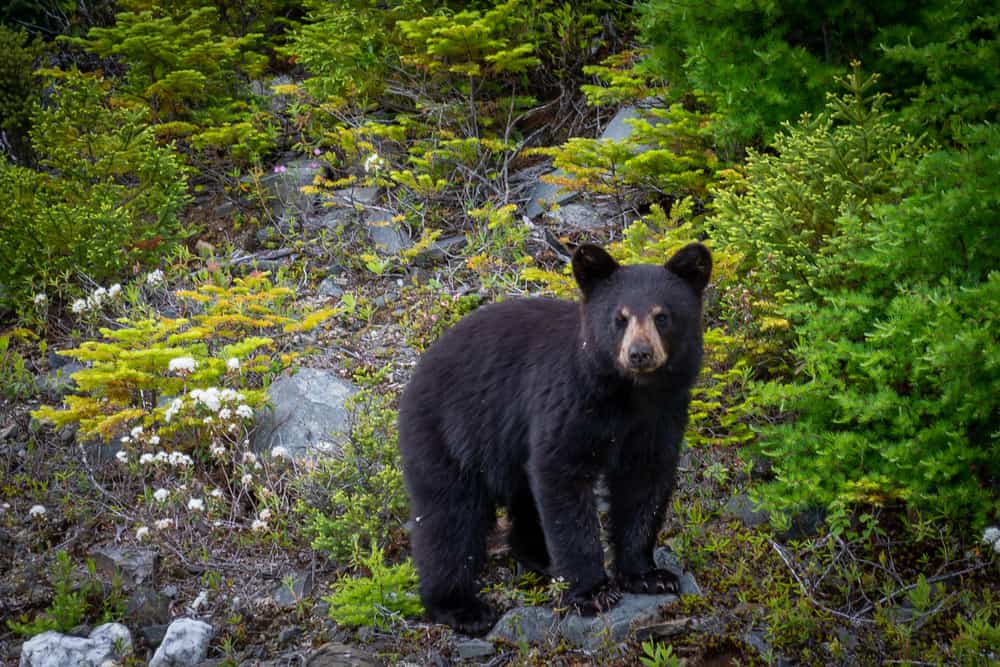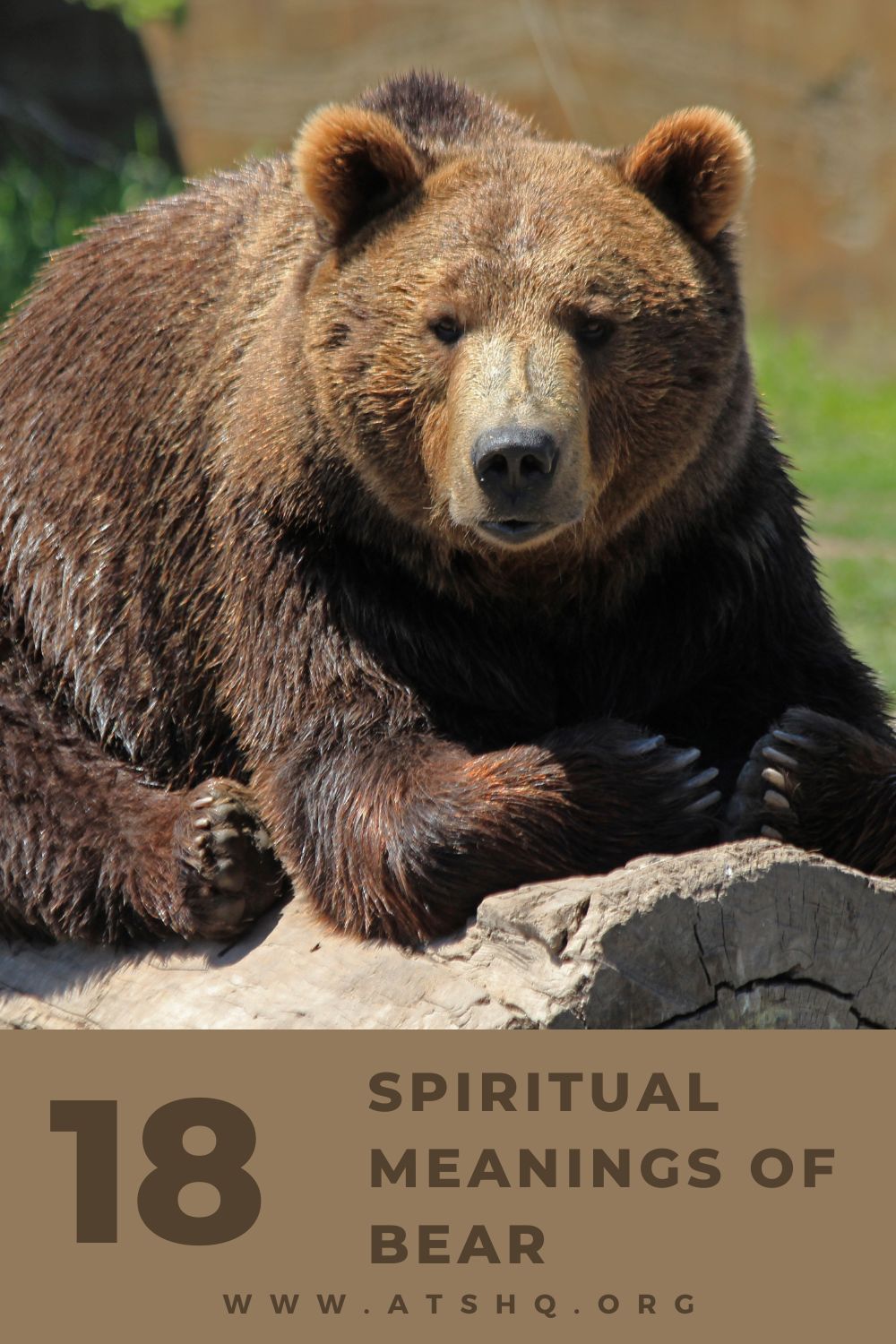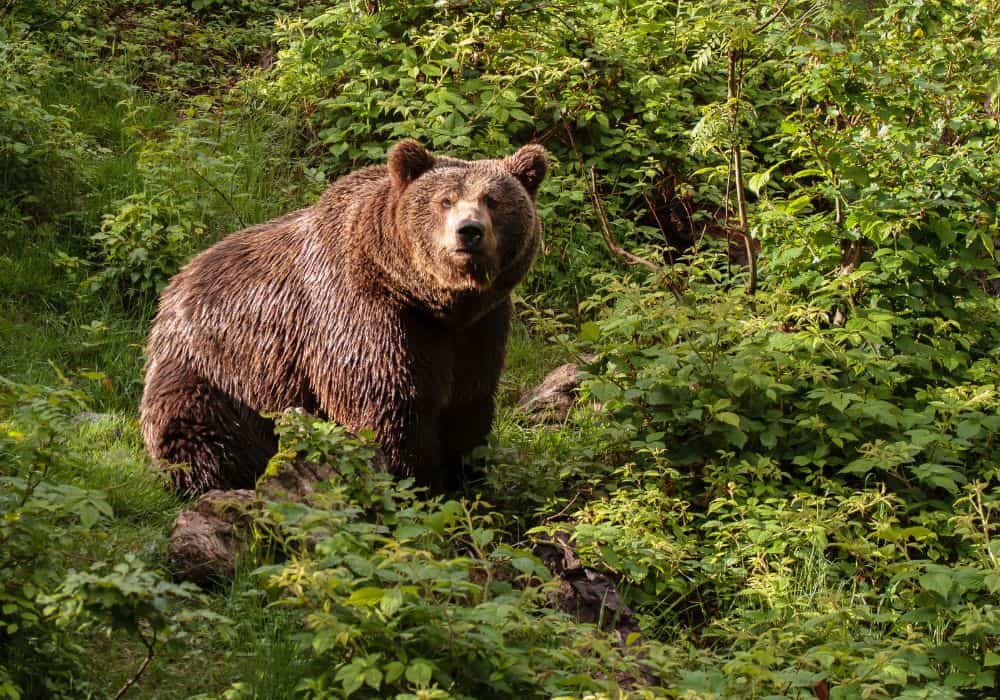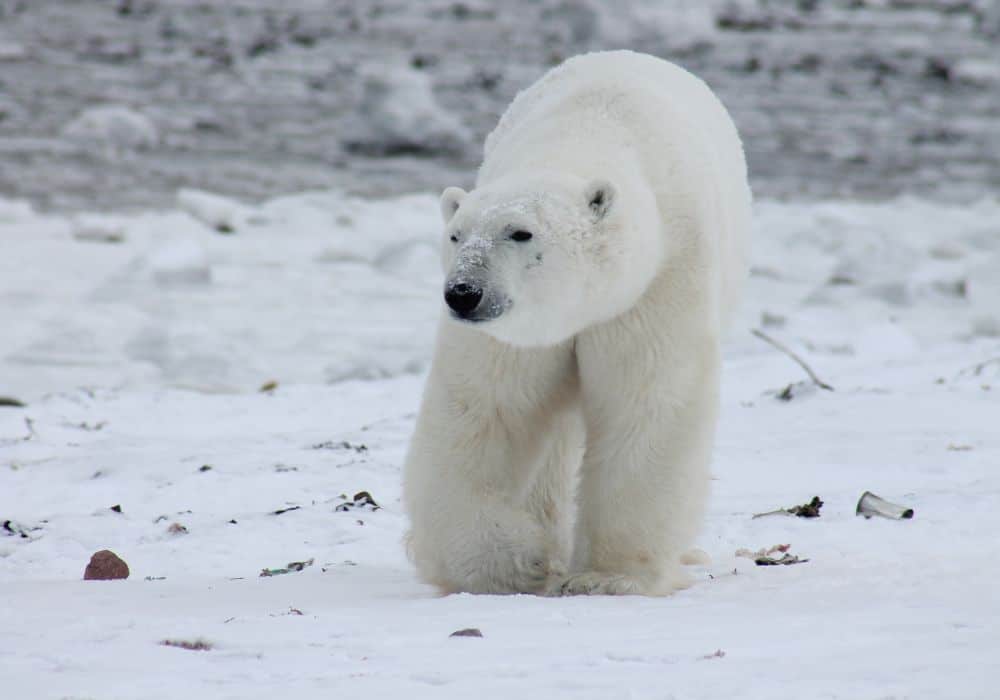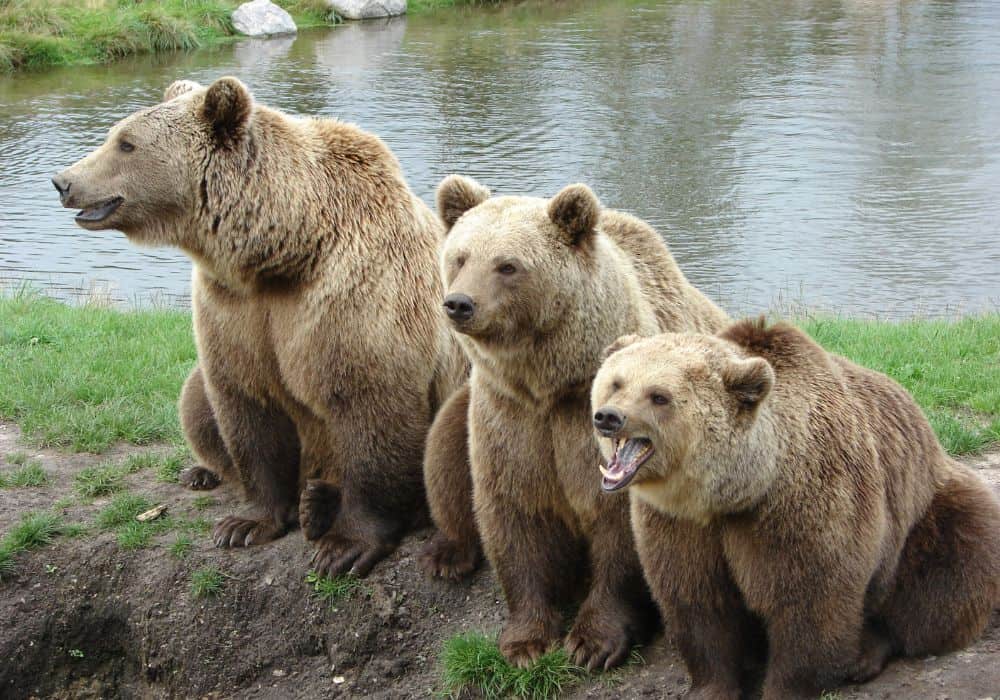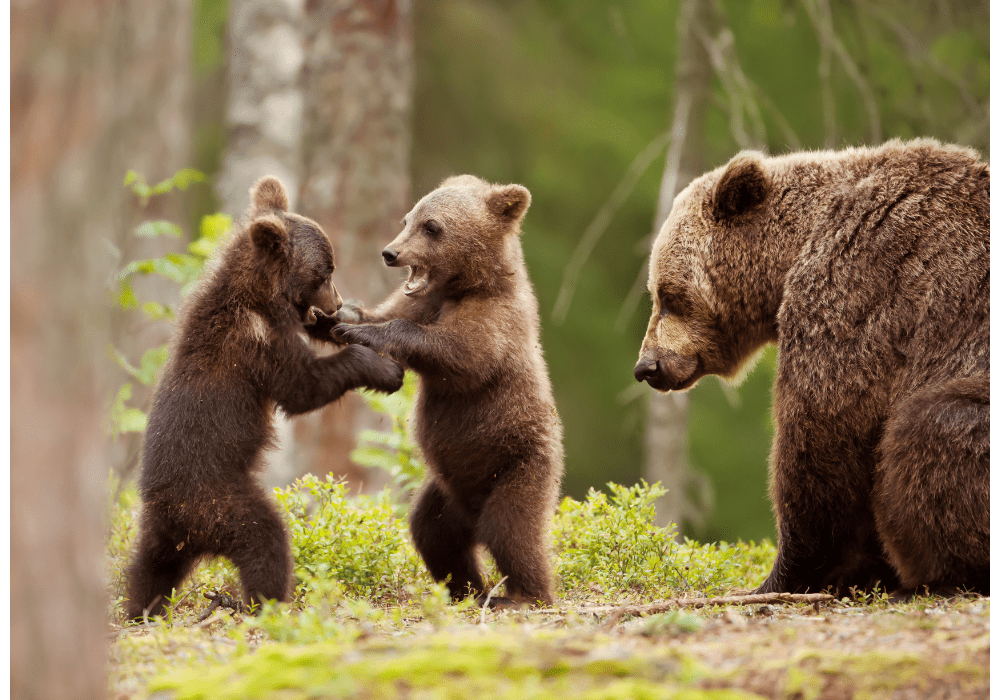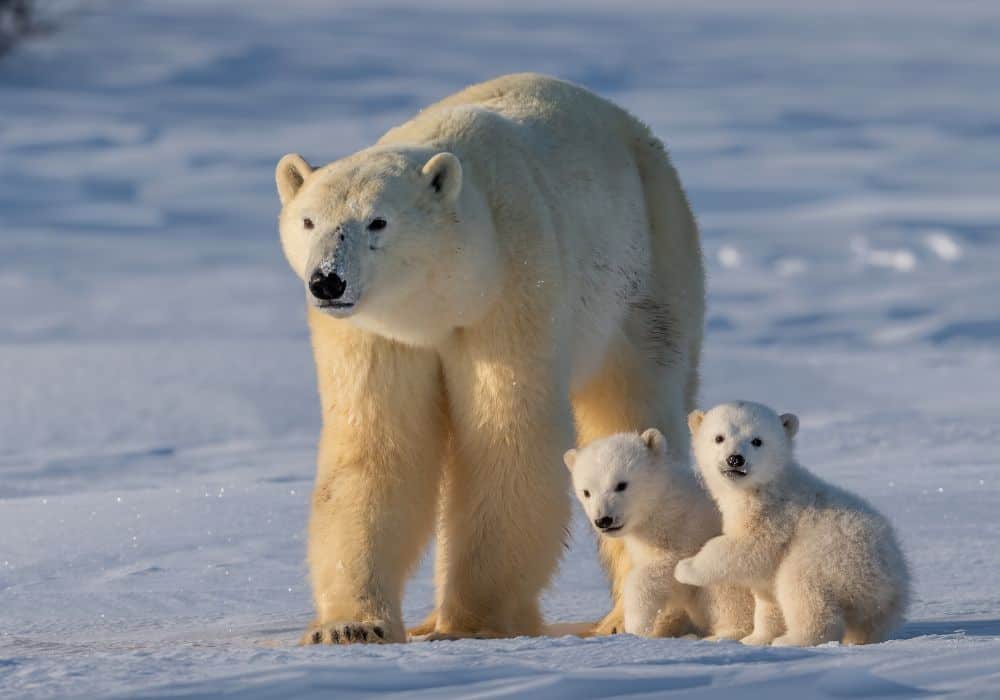Few animals are so closely associated with the forest than the bear. And since bears and human beings have been interacting for millennia, it makes sense that humans have come to see bears as symbolic in many different respects.
Of course, there are many kinds of bears on the planet, so the type of bear a culture interacted with played a large role in determining how that culture perceived the bear.
In this article, we talk about general bear symbolism, how bears are perceived as symbols throughout different cultures, the significance of bear symbolism in religion, what it means if you have a bear as your spirit animal, and a lot of other cool information.
You’ll find the material here interesting whether you’re a bear lover or just somebody who wants to know more about the species. So let’s get started, as there’s a lot to cover!
General Bear Symbolism
1. Strength
It should come as no surprise that the bear is often associated with strength. And bears aren’t just powerful—they’re quite fast too, especially considering their size. Some black and brown bears have been clocked at running faster than 30 miles an hour.
If you want some perspective on that number, consider that a wolf can run 40 miles an hour with effort.
And unlike other animals that are strong but clumsy, the bear has strength, mobility, and nimbleness, and for all these reasons the bear is a force to be reckoned with in the forest.
A bear needs its strength to climb trees, build its den, and hunt, and its strength is also its main means of protection. But they’re not brute force animals, as they often rely on their considerably strong brain power as well.
2. Curiosity & Playfulness
Despite being ferocious creatures that can maul even the strongest human to death, bears are curious and often playful, especially when around familiar faces. Bears love to smell and inspect, and in captivity, a little bear will display their curiosity nearly every day.
They also enjoy relaxing, whether it be hanging from a tree or resting upright against a sturdy tree trunk.
3. Adaptability
The bear is a mammal that hibernates, and the world it leaves before hibernation is not the world it wakes up to once the harsh winter is over. And since the bear can survive through hibernation and carry on like normal afterward, it’s often associated with transition, rejuvenation, and rebirth.
4. Patient
In addition to their strength, bears are incredibly patient as well, and this is why they are associated with patience.
Whether we’re talking about the grizzly or polar bear that has to stalk and wait for the right time to pounce on its prey—or the bear standing in the creek waiting to catch a fish—we’re talking about a patient apex predator that will only act when opportunities come it’s way.
5. Intelligent
Along with being patient, the bear is also incredibly intelligent. It uses its intelligence to be an expert hunter, and it can also rely on this to outsmart humans that are looking to hunt it.
And if the bear’s prey runs up a tree, and the bear can’t climb it, they’ll just sit there until the prey is forced to capitulate. Their unique blend of intelligence and strength makes them deadly adversaries.
6. Protecting
Bears are natural protectors, and that’s why they’re often associated with protection. A mother and father bear will both go to great lengths to protect their young, and it doesn’t matter what’s causing the threat. For this reason, bears are symbolic of courage as well.
How Are Bears Symbolized Across Different Cultures?
Since bears are found on most continents, they’ve had plenty of time to interact with human beings. And different cultures have very different interactions when it comes to bears, which means while some of the symbolism is the same across cultures, there are a lot of differences.
Let’s look on a culture-by-culture basis to see how bears are symbolized.
1. In Native American Culture
In Native American culture, the bear is one of the most important animals. Like the frog, it is thought to have magical healing powers, and the Native American tribes viewed this creature as being emblematic of both strength and wisdom.
Native Americans from the South to the Great Plains revered the bear and honored it by representing its actions during celebrations and ceremonies. They would also do bear dances to mimic the bear’s movements to further honor its way of life.
One of the reasons why the ancient Native Americans thought the bear was an expert healer is because of its ability to endure wounds and pain midst combat.
Moreover, the bear totem, which could be found in many Native American villages, could bring good luck and protection. For the same reason, people wore bear claw necklaces, as they thought these provided strength, protection, wisdom, and courage.
Additionally, Native American hunters made a point to not kill any mother bears, as doing so was thought to bring incredibly bad luck. And in Native American mythology, the bear is the creature that judges all others.
Still, it’s often the case that the bear is easy to trick, despite its intelligence; curiosity gets the best of it.
2. In Celtic Culture
The Celts saw species of bears as a symbol of strength and stamina, and this is why many warriors adorned their armor with bear symbolism.
They also believed that the bear had connections to the spiritual world, and they saw the bear hibernating all winter as a confirmation that this was a spiritual creature, one that could even protect dreams.
And when it comes to dreams, bears were particularly important, as the Celts believed in a spiritual guide bear called the Great Mother. This being would convey guidance and wisdom while the person sleeping.
The Celts also saw the bear as a sign of rejuvenation, as it would emerge from hibernation, often with cubs, in the spring after being away for the winter months.
Bear emblems were also thought to have healing properties, and Artio, the Celtic bear goddess, was prayed to so hunters could have success and stay safe.
3. In African Cultures
Although bears are rare on the African continent, they do still populate some regions, particularly in east Africa. And in Kenyan folklore specifically, there is Nandi, a beast that’s twice the size of the average bear and possesses many of the same qualities.
This being is said to be a human hunter that collects the scalps of humans as trophies. For a while, it was thought that this was a creature from the prehistoric age.
Generally speaking, the bear clans are particularly feared by many tribes—even those that experience hunting lions, which in many respects are just as deadly if not more deadly than the bear. Just goes to show that the rarity of these creatures has a lot to do with what’s made them so terrifying.
African cultures also respect the bear’s intelligence and will, and they’re seen as being able to overcome all obstacles. There are even references to bears in ancient Egypt, but the bear the Egyptians depicted was sheeplike and extremely docile (when to the modern bear).
4. In Finnish Culture
Finland is a place where bears have long been revered, and today they still are. One Finnish legend is that deceased bears look to reincarnate through unsuspecting women, and this is why women are advised to stay away from bear carcasses.
Moreover, in Finnish mythology, Otso is the name for a great bear that was raised by a woodlands deity. Otso wasn’t supposed to use his teeth and claws for violence but ended up doing so, and such is what gave the Finnish the right to hunt bears.
5. In Eastern Cultures
In eastern cultures, the bear was important for a variety of reasons, and what’s more significant is that eastern cultures often dealt with pandas and not the traditional brown or black bear.
In ancient China, the bear was seen as a divine being, one that was to be honored. And in the eastern part of the world is particularly where the idea of bears as healers really took hold. As a result, mass hunting led to people collecting the gallbladders of bears, as they thought these were bear medicine.
To no surprise, such almost led to the extinction of bears on the continent. And like the Celts, many eastern cultures believed that a spiritual mother bear watched over them to ensure their safety.
It wasn’t just the mainland countries that had respect for the bear, as the Japanese too had panda bears in their mythology. Ainu is a bear, and it’s said he rules over all the other gods.
Bears are also seen as motherly and nurturing, which is why nursing mothers would keep bear emblems close when raising their children through infancy.
6. In Slavic Culture
In Slavic culture, the bear is one of the most important animals, and it’s often associated with the god Volos. But the Slavs didn’t solely revere the bear, as they also hunted them for food.
And for the Nivkh people of eastern Russia, relations with bears were even more unique. These natives would raise bears like they were human children, which would show how much they valued these creatures.
But then at a ceremony that would be meant to honor the developed bear, the bear is killed and eaten. This ceremony would be overseen by a shaman to ensure it didn’t unintentionally attract bad spirits.
Bear Symbolism Across Religions
1. Christianity
In Christianity, the bear is almost always portrayed in a negative light. In the Bible particularly, the bear is depicted as a beast with no conscience, one that kills without mercy. This is why the bear is sometimes associated with the wrath of God against sinners.
Some of the Bible’s heroes saw the bear as an adversary, including Daniel and David. Daniel in particular compares the Persians to a bear, which indicates their ruthlessness.
Moreover, a bear that is attacking a flock of sheep is particularly bad because the flock is indicative of the followers of Jesus Christ; in other words, the bear is attacking Christ.
But for all the negative bear symbolism in Christianity, it’s true that bears are a nurturing and protecting species, and such a nurturing and supportive manner is championed in Christianity.
2. Hinduism
In the Hindu faith, it’s believed that seeing a bear in your dream is actually a good sign. According to the Swapna Shastra, which is an ancient Hindu scripture that’s used to interpret the meaning of dreams, seeing a bear means you’ll enjoy gainful employment, peace, and happiness throughout life.
A vision of a bear eating specifically means money and prosperity are around the corner, while a chained bear represents a subconscious need for direction and courage. Being chased by a bear is a sign that trouble is on the horizon.
3. Islam
In the Islamic faith, the bear is seen as dangerous yet stupid, which is a unique perspective when compared to those held by other cultures. But seeing a bear in a dream is usually a bad vision.
Moreover, if you see a bear sitting, this means that you’ve insulted somebody. Killing a bear means you’ll be victorious over an enemy. Eating a bear represents fear, and catching a female or male bear is a sign that you’ll get married to an unintelligent individual who has bad luck.
Bear Symbolism in Folklores and Mythologies
Different cultures have different folklores and mythologies, and the bear has been a symbol of many for millennia. In Native American folklore, for example, the bear is seen as the guardian of the forest, and it has the ability to speak to humans, though it rarely does this. Compare this to Asian folklore, where the bear is somewhat of a strange entity.
The bear was a staple of medieval European mythologies as well, and to the subscribers of such mythologies, it was believed that the bear was symbolic of lust and physical pleasure. In fact, there is a story about a woman being abducted by a bear specifically for this purpose
And in Nordic mythology, a warrior wearing a bear animal skin is seen as a berserker or a true disciple of Odin. Wearing bearskin was thought to make a warrior powerful, courageous, and (most importantly) protected.
What Does It Mean if the Bear Is Your Spirit Animal?
If the bear is your spirit animal, it’s likely you’re strong, intelligent, and able to hold your own in fights both physical and verbal. Those with the bear as a spirit animal also feel courage when facing a tough situation, and they can endure a lot. They also don’t give up and they keep their head held high.
With this spirit on your side, you can have more confidence and less fear. And people who naturally channel the spirit of a bear are great leaders, as they command with fear, competence, and strength.
And despite being mostly humble, a bear can be impulsive, and it may even lose its temper easily. It can also attack without provocation. A bear may also get too prideful, so when this is your spirit animal you have to constantly be aware of your emotions.
What Does Seeing a Bear in a Dream Mean?
Although much has been said already about bears and dreams, what hasn’t been saying is that in many cultures, a dream about a bear could mean that you’ve lashed out against somebody who didn’t deserve it.
Moreover, a dream that involves bears and bear cubs could mean that you’re lacking attention and affection in your life. If you’re being chased by a bear, this means that in real life you’re being dogged by fears and there’s a part of your past that you’re trying to run from.
If a big bear shows up in your dream, this is a powerful sign that you can’t run from your problems, rather you have to face them and conquer them like the bear spirit animal would want you to do.
If the bear is far away when you see it, the lesson here could be that your life is full of people who don’t have your best interest at heart. And if you see a black bear, this could be a sign that you have an enemy out there who’s wishing you nothing but the worst.
Seeing a friendly bear in a dream, on the other hand, means that there is security in your life and not much to be fearful of.
In short, bear dream meanings are hard to discern, and a lot of the meaning comes from specific factors in the dream.
Conclusion
At this point, it should be clear how important and symbolic bears are to a range of cultures and religions.
Whether we’re talking about polar bear symbolism, grizzly bear symbolism, black bear symbolism, or another kind of bear-specific symbolism, we’re talking about symbolic concepts that for thousands of years have helped individuals better understand the world around them.
